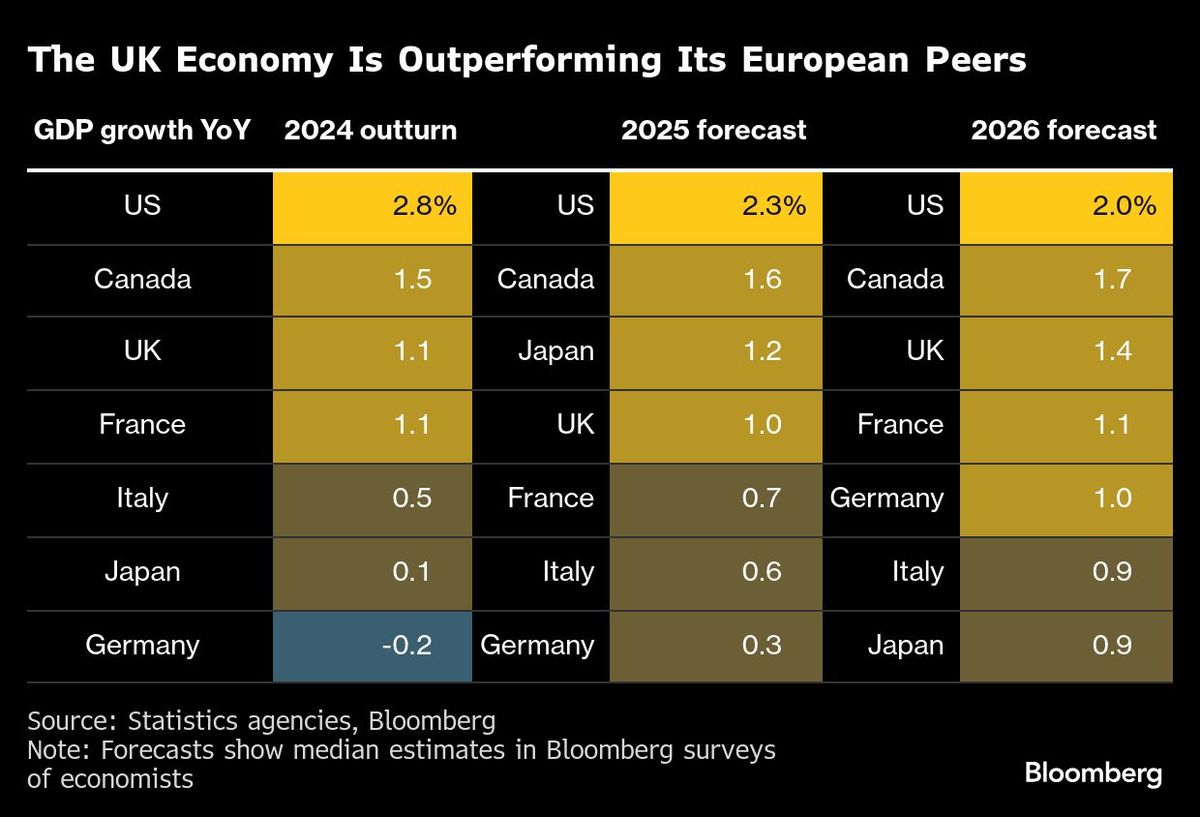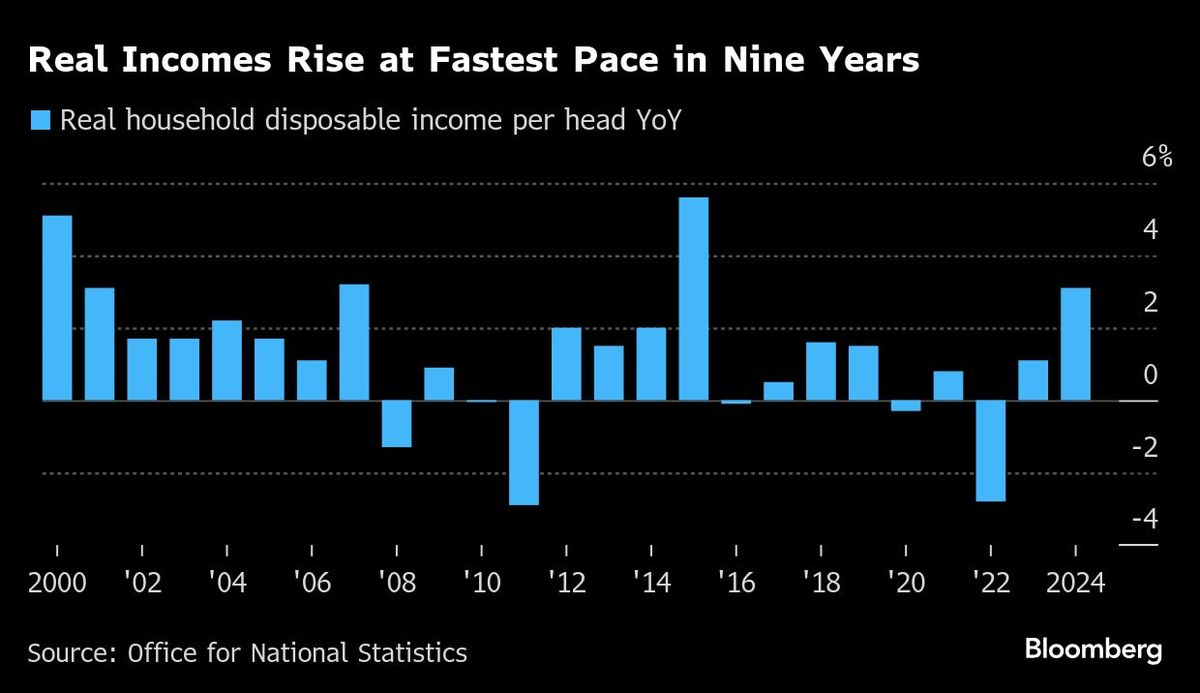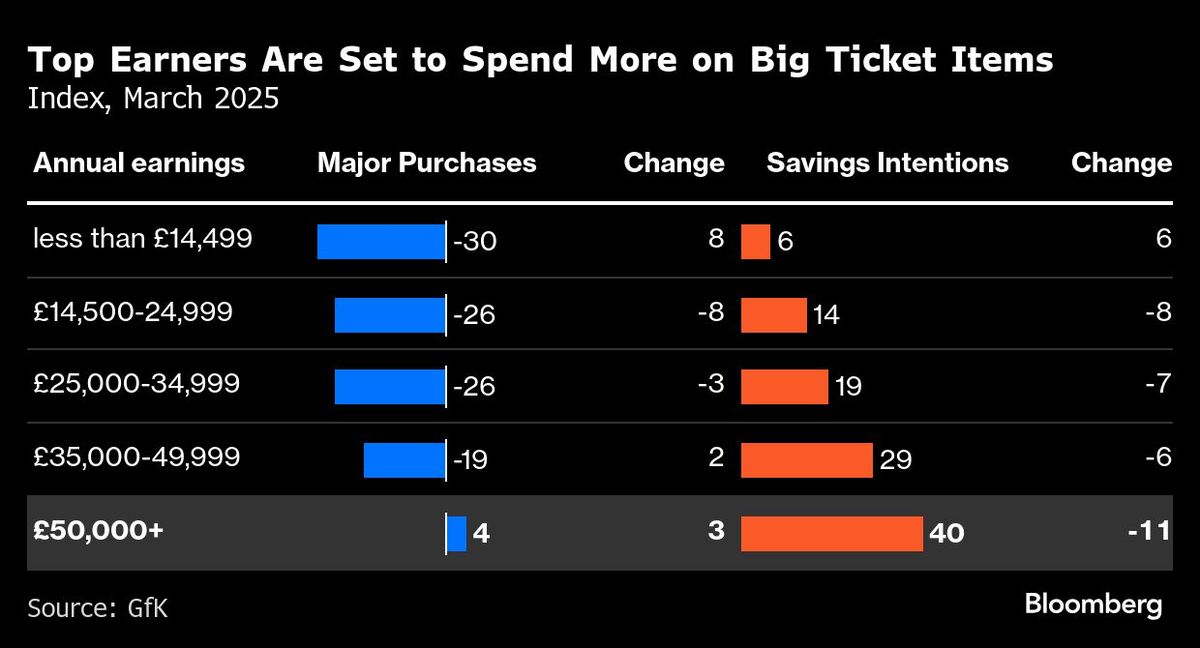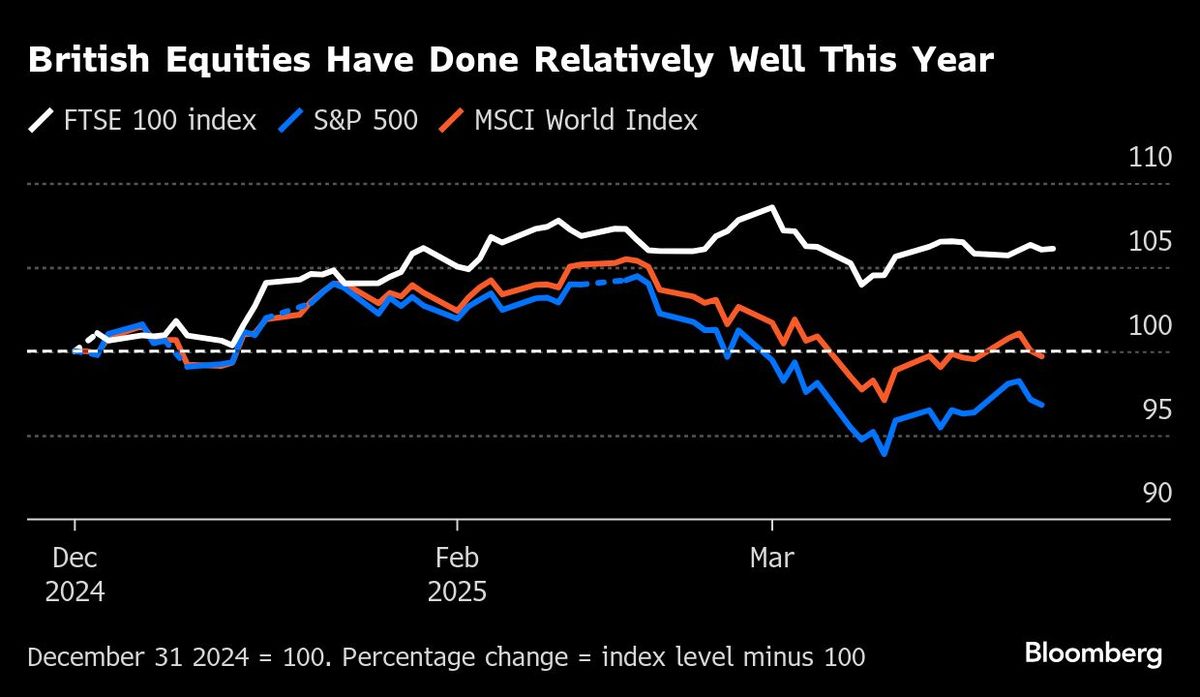
Consumer spending has not meaningfully rebounded since the pandemic.
(March 28): Prime Minister Keir Starmer came to power last year promising a growth boost but ended up presiding over a slump. Nine months on, however, the British economy may finally be turning the corner.
A range of economic indicators are starting to improve, from business activity to consumer confidence, and the prospect of two more interest-rate cuts this year promises a further tailwind. The big hope is that the all-important consumer will emerge from hibernation.
“Tentative green shoots” is how Ruth Gregory, deputy chief UK economist at Capital Economics, summed up a deluge of data earlier on Friday that showed retail sales rising and strong growth in living standards. RSM UK economist Thomas Pugh agrees.
“There are finally some signs that the UK consumer is starting to come back to life,” Pugh said “This is another piece of evidence suggesting that the economy bottomed out in the second half of last year after a body blow from the budget but is now starting to recover.”
The shift is good news for Starmer and his Labour government, which pledged to make growth its top priority — only to see the economy flatline as tax rises in October’s budget spooked businesses and consumers. Labour has lost support since the election, and is now barely ahead of the populist Reform UK party in opinion polls.
There are of course plenty of reasons for caution — a global trade war begun by US President Donald Trump could blow the recovery off course. And Chancellor of the Exchequer Rachel Reeves may have to raise taxes again later this year to keep the public finances on track. For now, though, things are beginning to look up on the home front.
Official figures on Friday showed retail sales grew a solid 1% in February, on top of a 1.4% increase a month earlier and defying predictions of a 0.4% drop. Separate GDP data for 2024 at the same time revealed that households experienced the strongest real income growth in nine years as wages outstripped inflation.
Prime Minister Keir Starmer came to power last year promising a growth boost but ended up presiding over a slump. Nine months on, however, the British economy may finally be turning the corner.
Consumer spending, which accounts for two thirds of the UK economy, has not meaningfully rebounded since the pandemic, leaving the government to do much of the heavy lifting. By contrast, it has been the engine of growth in the US.
In a demonstration of consumer caution, figures on Friday showed households saving 12% of their disposable income in the fourth quarter, the highest level outside the pandemic since 2010. The expectation is that Britons will revert to more normal patterns as confidence improves and Bank of England rate cuts reduce incentives to save.
Signs that households are becoming more willing to part with their income gains have emerged in recent surveys. GfK found that households earning more than £50,000 (RM286,403) are finally planning to start buying big-ticket items like fridges and furniture.
There have been positive signs from some of the country’s biggest retailers, too. High street titan Next plc, fast-fashion brand Asos plc and middle-class favourite John Lewis Partnership plc all posted positive numbers in recent weeks.
“The UK consumer is alive and well,” said Kathleen Brooks, research director at online trading market XTB. “This suggests that the UK economy may bounce back after a weak start to the year.”
Friday’s upbeat figures were hailed by Reeves, in particular the rise in disposable income that puts Labour on track to meet its pledge of improving living standards. Any upturn in the wider economy would bring much-needed relief to the chancellor — who has been criticised this week over the fragility of her plan for the public finances — and several data points are now hinting at the UK’s reviving fortunes.
Business activity, as measured by the composite purchasing managers’ index, hit a six-month high in March. Rent inflation is slowing and will halve by next January, bringing “some reprieve for tenants,” according to Bloomberg Economist Niraj Shah. Employment and wages are holding up amid rising demand for staff. Millions of workers will get an inflation-busting 6.7% increase in the minimum wage next week.
The Office for Budget Responsibility this week halved its growth forecast for 2025 to just 1%, falling into line with the private-sector consensus. But it then expects growth to pick up, boosted by government housebuilding plans and underpinned by rising living standards. Britain is forecast to continue growing faster than other European economies.
Hints of this quietly renewed optimism can be seen in investor sentiment. The FTSE 100 shares index has outperformed both the S&P 500 and the MSCI World Index of developed markets.
Worries remain, even beyond the geopolitical dangers being posed by the new US administration. Domestically, inflation is heading back toward 4% amid rising energy and food prices. Unemployment may start to pick up once the £26 billion payroll tax unveiled in October takes effect next month. But, for the first time since taking office, Labour might soon have something to shout about.
“The upshot is that the economy is in slightly better shape than we thought at the end of last year, and households look to be in a strong financial position,” said Pugh.
Uploaded by Felyx Teoh
- Fire incident in Putra Heights not related to Gas Malaysia facilities, company says
- Massive gas pipeline fire in Puchong — Fire Dept
- Petronas confirms fire incident at Petronas Gas main pipeline near Puchong
- Gas pipeline blaze: 25 receiving initial medical treatment as of 10.35am
- Gas pipeline blaze victims recount earthquake-like tremors
- OpenAI finalises US$40b funding at US$300b value
- Directors cannot be automatically retired without an AGM, Court of Appeal rules
- LSH unit assumes management of KL Tower for 20 years until end-March 2045
- SpaceX eyes Starlink hub with multiple ground stations in Vietnam — Reuters
- Teleport to raise a maximum of US$100 mil for capacity expansion




